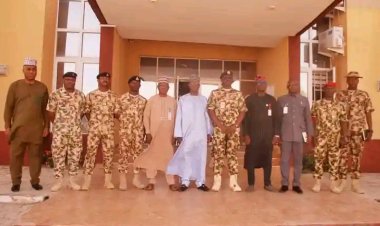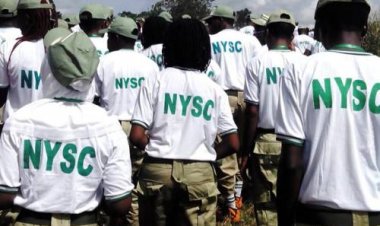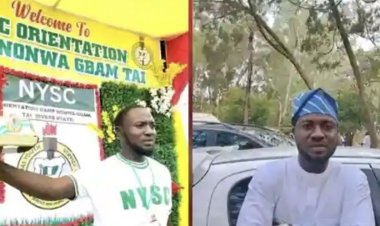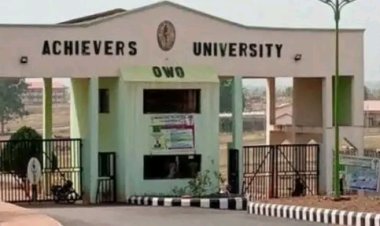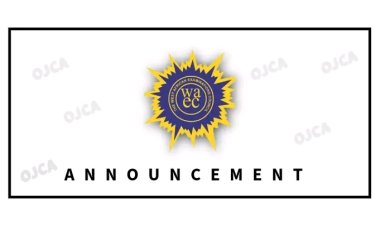GOUNI DNA Learning Center Train Ghanaian Scientists in DNA Barcoding for Local Biodiversity
In an effort to enhance biodiversity research and conservation efforts in Ghana, the DNA Learning Center Nigeria, in collaboration with Godfrey Okoye University, Enugu, recently organized a three-day workshop on “DNA Barcoding of Local Biodiversity.” The event, which took place from Thursday, August 31st to Saturday, September 2nd, 2023, brought together Ghanaian scientists eager to expand their knowledge in this field.

In an effort to enhance biodiversity research and conservation efforts in Ghana, the DNA Learning Center Nigeria, in collaboration with Godfrey Okoye University, Enugu, recently organized a three-day workshop on “DNA Barcoding of Local Biodiversity.” The event, which took place from Thursday, August 31st to Saturday, September 2nd, 2023, brought together Ghanaian scientists eager to expand their knowledge in this field.

Myschoolnews gathered the workshop featured trainers, Prof. George Ude, Prof. Tom Broker, Dr. Kwasi Agbleke, Michael Okoro, experts in the field of DNA barcoding and biodiversity research. Their participation underscored the commitment of DNA Learning Center Nigeria and Godfrey Okoye University to fostering scientific cooperation across African nations.
The primary aim of the workshop was to build local capacity among Ghanaian scientists, equipping them with the necessary skills and knowledge to conduct DNA barcoding of local biodiversity. DNA barcoding is a revolutionary technique that uses a short DNA sequence from a standardized region of an organism’s genome to identify species. It has proven invaluable in cataloging and understanding the diversity of life on Earth, aiding in conservation efforts, and advancing scientific knowledge.
During the workshop, participants had the opportunity to engage in hands-on training, gaining practical experience in DNA extraction, PCR amplification, DNA quality and quantity measurement using the Nanodrop & Gel electrophoresis, sample sequencing, and bioinformatics data analysis using the DNA Subway platform. These skills are essential for researchers seeking to contribute to Ghana’s conservation efforts, monitor ecosystem health, and address issues related to biodiversity loss and species identification.
Prof. George Ude, the lead trainer of the workshop, emphasized the importance of this training for Ghanaian scientists. He stated, “Biodiversity conservation is a global concern, and accurate species identification through DNA barcoding is vital for preserving our natural heritage. By training scientists in Ghana, we are empowering them to take a more active role in these efforts and contribute to the global scientific community.”
Michael Okoro, who assists Prof. Ude at the DNALC Nigeria, echoed this sentiment, saying, “Our goal is not just to provide knowledge but to foster collaboration and strengthen the network of researchers working on biodiversity issues in West Africa. Together, we can achieve more for the environment and future generations.”
The participants, who came from various universities and research institutions across Ghana, expressed their gratitude for the workshop. Dr. Kwasi Agbleke, the Director of the host institution – SENA Institute of Technology, Ghana remarked, “This workshop has been an eye-opener. We now have the tools and knowledge to make significant contributions to biodiversity conservation and research in our country. It’s a game-changer for us.”
The event concluded with a commitment from DNA Learning Center Nigeria and Godfrey Okoye University to continue supporting scientific collaboration and capacity-building efforts across the African continent. They pledged to organize similar workshops in the future, ensuring that more African nations can benefit from the expertise and resources available.
As African countries increasingly recognize the importance of biodiversity conservation, workshops like this serve as a crucial step toward empowering local scientists to take the lead in preserving their natural environments. With the skills acquired at this training, Ghanaian scientists are better equipped than ever to contribute to the protection and understanding of their nation’s unique biodiversity.

 Emmanuel Eze
Emmanuel Eze 